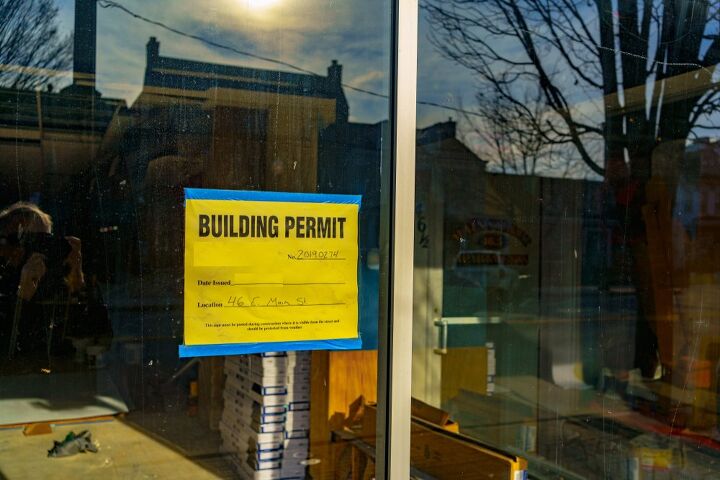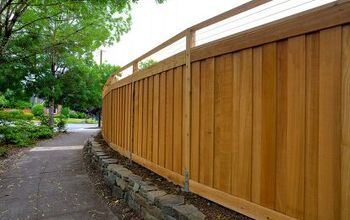How Can I Find Out If My Neighbor Has A Building Permit?

The neighbors want to expand their house. And you’re all about making the neighborhood more beautiful. But what happens when they don’t have a building permit? Better yet, how can you find out where they stand?
Discover if your neighbors have a building permit by contacting the county assessor or recorder’s office. Then ask to see records of your neighbor’s filings. You’re allowed to print and distribute public records because of FOIA. And most county offices will provide copies of documents for free. So, collect evidence before admonishing your neighbors. But hold them accountable for breaking the law.
Do You Need a Permit Service?
Get free, zero-commitment quotes from pro contractors near you.

Can My Neighbors Build Onto Their House?
Your neighbors are allowed to expand their house if they own it. So, there’s little you can do if you don’t like their design. Homeowners can also build additional rooms, renovate existing spaces, and construct a boundary fence on their property. But they must obtain a building permit from the city in most cases.
Permits help the county update its records. That way, the IRS knows what to charge for property taxes at that address. So, neighbors who erect a new structure without permission can face fines or penalties. And in some cases, the government might force them to take it down.
DID YOU KNOW: You can sue neighbors who create buildings that block your right-of-way.
How Can I Find Out If My Neighbor Has a Building Permit?
So, how do you find out if your neighbor has a building permit? It’s easy. You can call the code enforcement agency in your county to begin. Or you can visit the office in person to collect evidence on the same day. Either way, be sure to have the relevant information ready.
Code enforcement agents will request specific facts to determine your neighbor’s standing. So, bring the correct name and address if you can. And if your neighbor pulled a permit to build, they will hand over those records.
NOTE: Some city offices might charge a small fee for printing documents.
Are Building Permits a Public Record?
You should receive a copy of the latest building permit if you contact the Code Enforcement office. Your city keeps impeccable records for tax purposes and other reasons. So, anyone can access the annuls to gather information about properties in the neighborhood. But that means your neighbors can also get data about you. And you shouldn’t expand your property without getting permission first.
What Happens If You Build Without a Permit?
If you or the neighbors build without a permit, you could get in trouble. And if you rent an apartment, you usually can’t renovate the property at all. So, check with your landlord before touching anything. Then, file for your building permits at the local courthouse.
Builders without permits are committing a crime. So, neighbors can call the cops or sue them in court. If the court finds them guilty of a building code offense, they could go to jail. But most likely, the courts will only impose fines and penalties instead.
DID YOU KNOW: Builders who continually disobey court orders can face fines of up to $100,000 in some states.
Do You Need the Neighbors’ Permission to Build an Extension?
The neighbors don’t need permission to plan an extension on their home. However, they need a building permit to complete most exterior remodeling projects. Many cities require updated information about square footage and amenities for recording local property taxes. But assessors might also need the facts to determine land boundaries and homeowner’s rights.
Meanwhile, the neighbors can’t start building until they get a permit. So, you can stall their progress if you know they’re disobeying the law. But remember that there are a few exceptions to the rule. And that means you have to consult your county assessor or recorder for more details.
Do You Need a Permit to Build a Fence?
Fencing laws can vary depending on where you live. For example, you usually can’t put a boundary fence on rented property. And many homeowners associations (HOAs) disallow privacy fences unless they meet specific criteria. So, always check before you spend any money.
Your neighbors don’t need a building permit to erect a barrier in their yard. If they stay within their property lines and don’t block roadways, there’s little you can do. However, some counties require a permit for new fencing around swimming pools and other enclosures. And for safety reasons, homeowners might need permission to build an electric fence.
Can Neighbors Dispute a Permitted Development?
The neighbors can complain about your building project if they want to. And you can complain about theirs as well. If the project causes a nuisance or poses a danger to someone in the community, the homeowners might have to stop working. And if you can prove they’ve broken the law, you can get the courts to force a demolition.
Meanwhile, your next-door neighbors can’t dispute a legal development because the courts already deemed it safe. So, they can’t make you change anything if you follow the law. But that means you can’t ask them to change or remove elements on their structures either.
Can a Neighbor Build Against My House?
Other homeowners cannot do anything to your private property without consent. There must be a clear boundary between land to prevent civil disputes. And unauthorized access to someone else’s yard is trespassing, which is against the law. However, you can agree with the neighbors about common structures such as fences, retaining walls, ponds, and new foundations. So, be sure to talk to the folks next door first.
How Can I Stop My Neighbors From Building?
Not excited about the neighbors expanding their house? Here are a few steps you can take to stop it:
#1. Confront the Neighbors
Politely approach the people next door. Let them know how their new construction could affect the neighborhood. And be sure to ask questions about home values if you get the chance.
#2. Organize a Group
Motivate other people from your community to reject the neighbor’s remodeling project. Then, see if people from the neighborhood would be willing to help you stop construction using the law.
#3. Contact the Local Government
First, find out if your neighbor has a building permit or not. If they don’t, you can take the case to county lawmakers, and they’ll stop construction immediately.
#4. Hire a Lawyer
An estate attorney can help you determine your rights and responsibilities. They can also give you tailored legal advice, which this isn’t. So, consult a lawyer first.
You don’t necessarily have to deal with the neighbor’s building. But always find out if they’ve filed a permit to build with your county. And gather your records before approaching anybody.
Related Questions
Can Neighbors Complain About Building Work?
Anyone in the neighborhood can complain about anything. So, the neighbors can file formal complaints about your building work. But always try to resolve property disputes by talking to the neighbors first. That way, you don’t have to sue anybody or call the police. And remember that it can be challenging to determine land boundaries. So, check the county records for the latest official survey.People are more likely to complain about building projects that cause a nuisance. Thus, loud construction and dangerous worksites are two of the biggest concerns. So, put up no trespassing signs when you build on private property. And tell the community your plans after filing for a permit.
How Much Does a Building Permit Cost?
Building permits are typically inexpensive. And most counties offer permissions to build for less than $100. However, prices can vary based on location and project type. That means you can pay more or less depending on the address and extension. For example, residential building permits cost less than non-residential permits.
What Is the Four-Year Rule?
The Four-Year Rule defines existing buildings or structures that have remained unchanged for more than four years. Moreover, someone must have built the facilities without a planning or building permit. So, a neighbor’s garage can fall under the four-year rule. Thus, the homeowner can leave it unchanged even if it isn’t up to code.
How Close to My Property Line Can a Neighbor Build?
Property laws can vary from one state to another. So, be sure to check the local regulations for specific information. You can find the facts at your county assessor’s office. But expect to keep a ten to a twenty-foot minimum gap between your buildings and the land boundary. The only exceptions are fences, which sit around the parameter, and existing structures, which fall under the four-year rule.
Do You Need a Permit Service?
Get free, zero-commitment quotes from pro contractors near you.

Keep the Neighborhood in Check
Live in peace with the neighbors, even as they build. But hold them accountable to the local laws and building codes. You don’t have to enjoy every decision they make. However, you can stop them from building under certain circumstances. So, contact the county assessor for more information. And gather your records before approaching anybody.
Related Guides

Tiffany Nichols specializes in aesthetics, design, marketing, and manufacturing. She's a copywriter and editor for several home renovation companies in the U.S. and works alongside some of the biggest names in the industry. Her hobbies include architecture, art, mental health, and fashion.
More by Tiffany Nichols



























